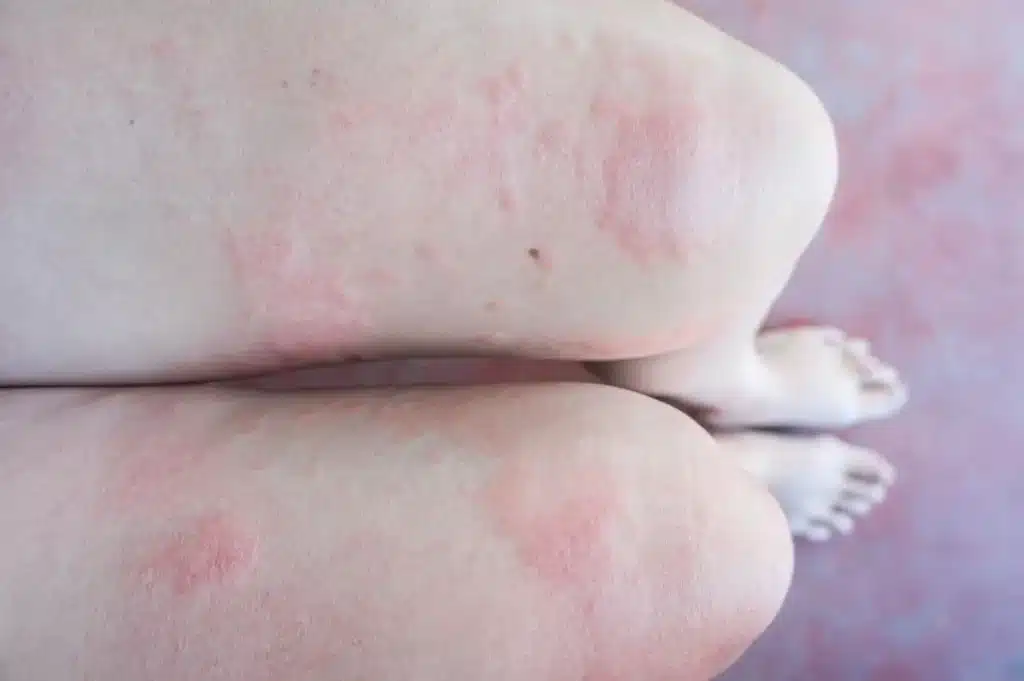Autoimmune conditions, where the body’s defense system turns against its own healthy cells, affect millions of people worldwide. In the UK alone, about 10% of the population is living with these disorders, which include rheumatoid arthritis, Crohn’s disease, and multiple sclerosis. The impact can be life-changing, with ongoing inflammation and long-term tissue damage often becoming part of daily life.
To bring relief, newer treatments have been developed to target the root cause of this inflammation. One of these is Cimzia (certolizumab pegol), a medication designed to block tumor necrosis factor (TNF), a key driver of inflammation in autoimmune diseases. By calming this process, Cimzia can ease symptoms and improve the quality of life for many patients.
But like any medicine, Cimzia also has its side effects. Some are mild and manageable, while others are less common but more serious. In this article, we’ll walk through the full spectrum of Cimzia side effects, from the most frequent experiences patients report to the rarer risks that healthcare providers keep a close eye on.
Key Takeaways
- Cimzia (certolizumab pegol) is a TNF blocker used to treat autoimmune conditions, but like all biologic therapies, it can cause side effects.
- Common reactions include injection site irritation, upper respiratory infections, urinary tract infections, rash, headaches, and fatigue. These are usually mild and improve with time.
- Serious risks, while uncommon, include severe infections, malignancies, liver issues, neurological events, heart failure, and hypersensitivity reactions. Careful screening and monitoring are essential.
- Patients should undergo TB and HBV screening before treatment and avoid live vaccines while on Cimzia. Routine labs may be ordered to monitor liver function and blood counts.
- Most side effects are short-lived and manageable, but any persistent or severe symptoms should be promptly discussed with a healthcare provider.
About: Medical Spa RX provides medical practices with premium products at the best prices. If you’re looking to buy Cimzia online for your practice, the sales representatives at Medical Spa RX can give you guidance.
Common Adverse Reactions Reported with Cimzia
Like other biologic therapies, Cimzia can cause side effects that vary in intensity. Most are mild to moderate and improve as treatment continues. The most common reactions include:
- Injection Site Reactions: Redness, swelling, itching, or tenderness at the injection site are the most frequent complaints. These usually resolve within a few days without intervention.
- Upper Respiratory Infections: Colds, sinusitis, or sore throat may occur more often due to Cimzia’s effect on the immune system.
- Urinary Tract Infections (UTIs): Bladder or kidney-related infections, such as cystitis, are among the commonly reported issues.
- Rash: Usually mild and temporary, though any spreading or worsening should be evaluated.
- Headache and Fatigue: Many patients report these early on, but both often lessen as the body adjusts to ongoing treatment.
While these effects may cause discomfort, they are generally manageable. Ongoing communication with healthcare providers helps ensure symptoms are recognized and treated promptly.
Serious or Rare Risks Linked to Cimzia Use
Most people tolerate Cimzia well, but certain serious or less common risks require close medical supervision. Key concerns include:

- Severe Infections: Because Cimzia suppresses immune activity, patients are more vulnerable to illnesses like tuberculosis, invasive fungal disease, and other opportunistic pathogens. Screening for latent TB before treatment and monitoring throughout therapy is essential.
- Malignancies: Cases of lymphoma and other cancers, including nonmelanoma skin cancers, have been reported with TNF blockers. Periodic skin checks are recommended.
- Neurologic Events: Rarely, demyelinating disorders resembling multiple sclerosis may develop. Any new or unexplained neurological symptoms should be evaluated.
- Hepatic Effects and HBV Reactivation: Elevated liver enzymes or hepatitis B reactivation may occur. Patients should undergo HBV screening before starting Cimzia, and those who test positive require monitoring.
- Heart Failure: Cimzia is not recommended in patients with moderate-to-severe heart failure. A clinician should assess new or worsening symptoms.
- Hypersensitivity Reactions: Though rare, severe allergic responses, including anaphylaxis or angioedema, can happen. These require immediate medical care.
These risks underscore the importance of regular monitoring and vigilance throughout treatment.
How Long Cimzia Side Effects Typically Last
The length of Cimzia side effects depends on the individual, the type of reaction, and overall health:
- Injection site reactions: Typically resolve within a few days after each dose.
- Headache, fatigue, or rash: Can last for days to weeks but often improve as the body adapts.
- Infections: May persist until treated appropriately and may require pausing Cimzia temporarily.
- Serious adverse effects: Issues like liver test abnormalities or neurologic symptoms can last longer and may need specific interventions.
In many cases, mild side effects fade without requiring treatment adjustments. However, any persistent or worsening symptoms should be evaluated promptly.
Guidelines for Managing and Monitoring Cimzia Side Effects
Managing Cimzia side effects requires both self-care strategies and professional oversight:

- Rotate injection sites to reduce irritation and swelling.
- Watch for signs of infection (fever, cough, sore throat) and report them immediately.
- Schedule TB and HBV screening before starting Cimzia and continue regular monitoring during therapy.
- Expect periodic lab tests (such as CBC or liver function tests) as clinically indicated by your provider.
- Review vaccination needs with your doctor. Avoid live vaccines while taking Cimzia.
- Use over-the-counter remedies, like acetaminophen for mild headaches or cold compresses for injection discomfort, only under medical guidance.
- Keep an open line of communication with your care team to report new or unusual symptoms.
These steps help maintain both safety and treatment effectiveness over the long term.
Cimzia and Pregnancy
For patients planning a family or who are already pregnant, questions about Cimzia and pregnancy are common. While data suggest that Cimzia has a lower transfer across the placenta compared to some other biologics, decisions about continuing treatment should always be made in consultation with a healthcare provider.
Discussions may include weighing the benefits of controlling disease activity against the potential risks for both parent and baby. Shared decision-making with a specialist is key in these situations.
Conclusion
Cimzia is a well-established option for managing chronic inflammatory conditions. Most patients experience manageable side effects like injection reactions, mild infections, or headaches, while serious complications remain rare. The medication’s safety profile is considered consistent with other TNF inhibitors, provided that appropriate screening, monitoring, and follow-up care are in place.
By staying engaged with their healthcare providers, tracking symptoms, and following recommended guidelines, patients can safely benefit from Cimzia while reducing the likelihood of complications.
FAQs
1. What are the most common Cimzia side effects?
Injection site reactions, respiratory infections, urinary tract infections, headaches, rash, and fatigue.
2. Are Cimzia injection reactions severe?
They are usually mild and resolve within a few days without treatment.
3. Can Cimzia increase infection risk?
Yes. It suppresses parts of the immune system, making bacterial, viral, or fungal infections more likely. Monitoring and early care are essential.
4. What should I do if I develop serious Cimzia risks like severe infection?
Seek immediate medical help. Your doctor may pause Cimzia and recommend further testing or treatment.
5. How is the Cimzia safety profile compared to other biologics?
Similar to other TNF inhibitors, with generally manageable side effects and rare but important risks requiring close monitoring.
6. Can I stop Cimzia if I experience side effects?
No. Never discontinue Cimzia on your own. Speak with your healthcare provider first.
7. Do Cimzia adverse reactions lessen over time?
Yes, many patients find that headaches, fatigue, and injection reactions improve as the body adjusts.
References
Conrad N, Misra S, Verbakel JY, et al. Incidence, prevalence, and co-occurrence of autoimmune disorders over time and by age, sex, and socioeconomic status: a population-based cohort study of 22 million individuals in the UK. The Lancet. 2023;401(10391):1878-1890. doi:10.1016/s0140-6736(23)00457-9
Bookwalter C. Cimzia (certolizumab pegol): Uses, Side Effects, Interactions, Pictures, Warnings & Dosing. WebMD. https://www.webmd.com/drugs/2/drug-150396/cimzia-subcutaneous/details
Cimzia. European Medicines Agency (EMA). Published July 1, 2025. https://www.ema.europa.eu/en/medicines/human/EPAR/cimzia





















